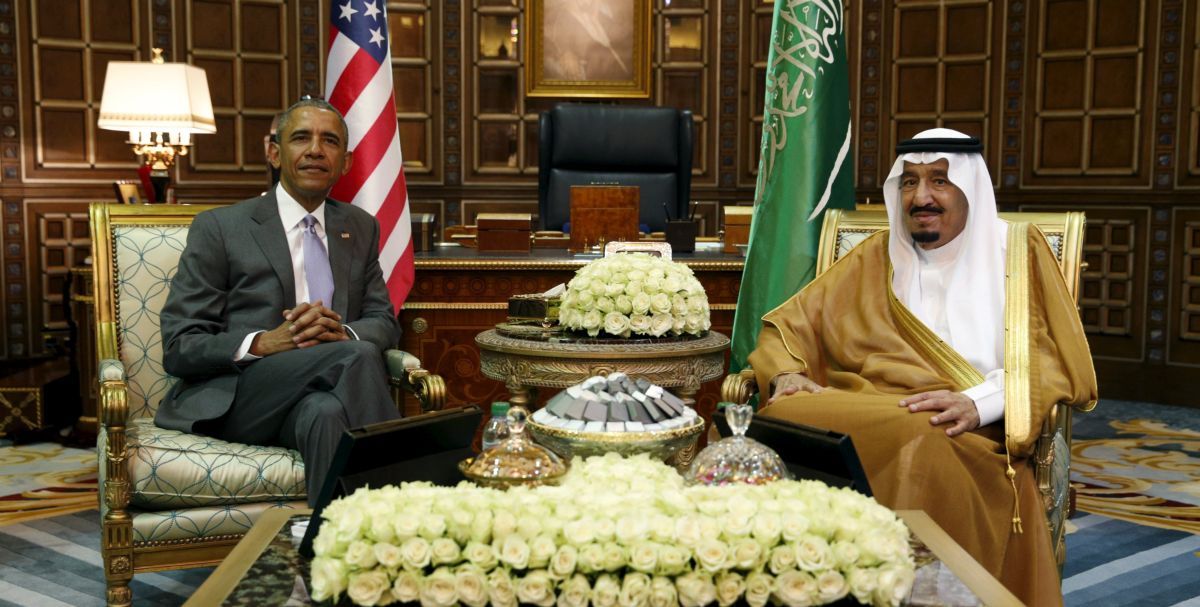
Obama and the six members of the Gulf Cooperation Council (GCC) opened the one-day summit Thursday with a session focusing on the political chaos and fighting in Syria, Yemen, Iraq, and Libya, VOA reported.
The U.S. is pressing for a greater focus on political solutions and less on sectarian fighting, especially in states like Yemen and Syria where cease-fires have been put in place, though they remain very fragile.
But some Gulf states, such as Saudi Arabia, view sectarian violence as the top security threat. Besides Saudi Arabia, the GCC alliance includes Kuwait, the United Arab Emirates, Qatar, Bahrain and Oman.
After the session on regional violence, the group will work on ways to bolster the fight against the Islamic State group and al-Qaida.
The U.S. and many Western countries view the terror groups as the top global security threat and are pushing for greater cooperation from Arab countries in the effort to combat them.
The final session includes talks on Iran and its destabilizing actions in the region.
Read alsoEgypt hands over two disputed islands to Saudi ArabiaTehran is backing Houthi rebels in Yemen, where Saudi Arabia has mounted a military campaign against them.
While the U.S. is expected to announce additional military assistance for its Gulf partners, analysts do not anticipate much in terms of agreement on how to confront key challenges in the region.
"One of the problems you really have is here the fact that the U.S. perceptions and priorities, which are perfectly natural given our national interests, simply don't always track with the national interests and priorities of countries in the region," said Anthony Cordesman, with the Center for Strategic and International Studies.
But such summits play an important role, he added.
"You sort of publicly reassure both sides. But that public reassurance isn't going to deal with the delicate and very uncertain problems that the countries involved face," said Cordesman.
Following a two-hour closed meeting Wednesday, President Obama and Saudi Arabia's King Salman agreed on the importance of "an inclusive approach to de-escalating regional conflicts."
In a statement after the meeting at Erga Palace, the White House said the two leaders discussed the "challenges posed by Iran's provocative activities in the [Mideast] region."
The U.S. and Saudi Arabia have seen rising tensions over differing approaches to Iran and the fight against terrorism.
The statement said Obama welcomed the recent cessation of hostilities in Yemen "and the King's commitment to providing humanitarian assistance across all of Yemen."
In addition, "the President underscored the importance of accelerating the campaign against [Islamic State] and welcomed Saudi Arabia's important role in the Coalition."
Read alsoISIS plotting tourist massacre at European resorts – mediaObama also met Wednesday with the Crown Prince of Abu Dhabi, Sheikh Mohammed bin Zayed Al Nahyan, Deputy Supreme Commander of the UAE Armed Forces.
After that meeting, the White House said both agreed the summit is "an important opportunity for the United States and its Gulf partners to strengthen cooperation against ISIL and also to address regional conflicts."
Following Thursday's summit, President Obama is expected to deliver a statement before departing for London, where he will address a range of issues with British Prime Minister David Cameron, including countering terrorism, the refugee crisis in Europe and the global economy.

